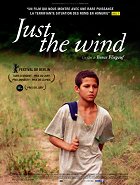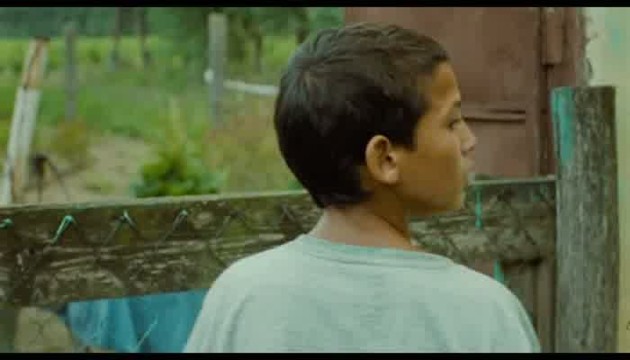Réalisation:
Benedek FliegaufScénario:
Benedek FliegaufPhotographie:
Zoltán LovasiActeurs·trices:
Katalin Toldi, Gyöngyi Lendvai, Lajos Sárkány, György Toldi, Gyula Horváth, Franciska Törőcsik, László CzifferRésumés(1)
Un village hongrois, aujourd'hui. Mari et ses enfants Rio et Anna, Rom d'origine, subissent sans broncher un quotidien précaire, dans l'espoir d'un jour meilleur, celui où ils vont rejoindre le père, émigré au Canada. Partir, prendre un nouveau départ, loin du racisme crasseux des villageois et...Vivre. Mais en attendant le grand jour, il faut rester vigilants, aux aguets, car mystérieusement au village et dans tout le pays des familles entières de Rom sont assassinées... (Sophie Dulac Distribution)
(plus)Critiques (3)
The most fundamental film about racism ever made. An amazing demonstration of Fliegauf's empathy, unique intuition and ability to let the viewer experience the situation through fragments without a guiding ideological raster. Only a few people in the world can do this, and Benedek may even stand out from them with his unique non-manipulative lyricism. If we teach our children to watch similar films, then European society has some hope of avoiding disaster.
()
From 2008 to 2009, a racist group undertook a series of brutal attacks against local Roma people in Hungary. They used Molotov cocktails to set fire to houses on the outskirts of settlements and shot at those fleeing with shotguns. Their rampage left several injured and six dead, including a four-year-old boy. The event was shocking even in the context of Central Europe, which is saturated with racism and other prejudices. A film based on this event could have had immense potential and could have awakened the public from lethargy. However, Benedek Fliegauf approached this bitter social issue in his own way and slowly directed a quasi-documentary about one day in the lives of a Romani family. He filmed it in a manner that art festival enthusiasts may appreciate, but that will reliably deter regular viewers with its form. They will feel like they are watching a hastily made film with poor camera work and lighting, filmed in an uninvolved manner and without a prominent protagonist. In short, a documentary that bores and elicits emotions only rarely. I dare say that there are only two scenes in the entire film that have the potential to appeal to a broader audience. Besides the final massacre, the scene is the cynical dialogue between two police officers at the crime scene, where the director illustrates the attitude of the security forces towards the "Gypsy question." This is not the most fundamental film about racism ever made, as some people say. This only speaks to the self-centeredness of the intellectual environment of the closed club viewer immersed in their cultural bubble. What matters is a film that sparks public debate, affects a significant part of society, and affects public opinion. This film is one of those for viewers who are already aware and which tries to convince those who do not need convincing. It fits precisely into the type of works that are screened around midnight on the Art channel. For myself, I say that this is my first and also the last film by Fliegauf. Clearly, we do not and will not understand each other. Overall impression: 25%.
()
Unfortunately, in this case, I'm inclined to join the camp of those who were bored. Individual scenes and individual details didn't mean anything to me, and I watched them without essentially feeling anything. I don't think I'm racist, I don't have a problem communicating with anyone, but I just didn't really know what was interesting about this family.
()

